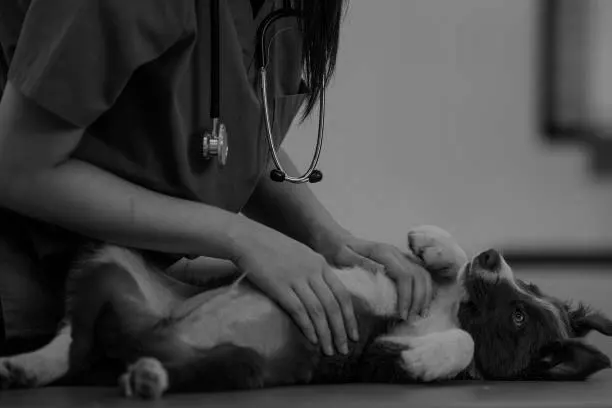[Tenjing Koyu and Apasi Linggi]
ITANAGAR, 15 Jan: There has been a significant surge in cases of parvovirus, a highly contagious viral illness that primarily affects puppies under the age of one year, here in the state. Veterinary experts have expressed concern over the alarming trend and are urging pet owners to prioritize vaccination and preventive care to combat the issue.
Dr. Yab Mate Bui, a senior veterinary doctor at KM Veterinary Hospital, Itanagar, explained that the virus is most active during the winter months, from November to February, and stressed the importance of vaccination as a preventive measure. “The parvovirus vaccine is best given when the puppy is 45 days old. Without vaccination, puppies are at high risk of contracting the virus,” she stated.
The symptoms of parvovirus include severe vomiting and diarrhea, which can be fatal if not treated promptly. Dr. Yab recommended CANGLOB-P FORTE as the most effective treatment available however acknowledged that it is relatively expensive and unavailable in government veterinary hospitals. She also advised pet owners to maintain hygiene and avoid letting infected dogs interact with others to prevent the spread of the virus.
Dr. Menjo Linggi, a veterinarian and owner of Wulla’s Pet Clinic in Roing, has also observed a significant rise in parvovirus cases at his clinic. He mentioned that his clinic treats between 10 to 15 cases daily, underscoring the growing severity of the issue. Dr. Linggi uses the Canigen DHPPil vaccine, which protects against parvovirus and other canine diseases. He stressed the importance of vaccination, noting that many pet owners wait until their dogs show symptoms like vomiting and diarrhea before seeking treatment. According to Dr. Linggi, timely vaccination is crucial in preventing the spread of the virus and ensuring the health of pets.
Dr. Yab also highlighted a significant shift in pet care practices over recent years. “Earlier, only two to five people would come to vaccinate their pets in an entire month,” she explained. “In those days, we would see around 100 to 200 cases of parvovirus, yet only a handful-five to ten-would opt for vaccinations.” However, the scenario has drastically improved. “Now, we see a steady rise in awareness among pet parents. Nearly 80 to 90 vaccines are administered every month, and as a result, the number of parvovirus cases has dropped significantly in the ICR (Itanagar Capital Region),” she added. This highlights the growing understanding of preventive care among pet owners, ultimately leading to better health outcomes for pets in the region.
Adding a personal perspective, Tibom Tekwa, a local pet parent, shared his experience with the devastating impact of parvovirus. “I had a dog once that showed symptoms of parvovirus and sadly passed away. It’s heartbreaking to watch a pet suffer, especially knowing that a simple vaccination could have prevented it. Back then, I was just a child and had no knowledge about vaccinations. Now, I strongly believe pet owners need to be more vigilant and proactive with early vaccinations and regular check-ups to protect their furry companions,” he said.
Despite progress in awareness, Dr. Yab emphasized that India and other developing countries lag far behind in veterinary healthcare compared to developed nations. “Most NGOs focus solely on rabies, leaving other critical diseases like parvovirus under-addressed,” she added.
Dr. Yab reassured the public that while parvovirus is a serious concern for dogs, it does not pose any risk to human health. However, she and Dr. Linggi called for greater awareness and improved vaccination coverage to curb the outbreaks effectively.
With the growing number of cases, the need for informed pet care and access to better veterinary facilities has become more urgent than ever.





